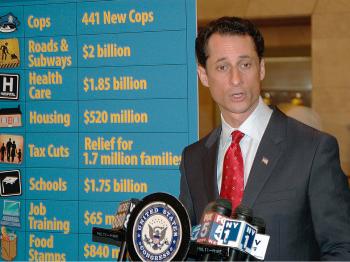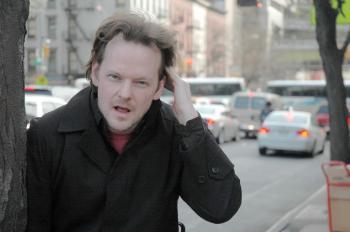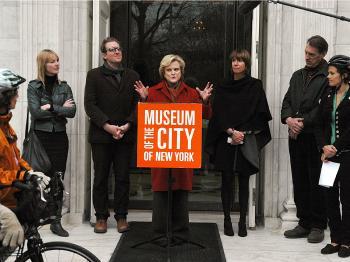Weiner explained that if one looks through the bad-budget news of the past several months, it is plain to see that the allocation of these funds is directly on target. The MTA, with its billion-plus dollar deficit, is expected to receive $1.7 billion. That is enough to get it out of the red and have sufficient funds left over to continue their current construction projects. Weiner even mentioned re-opening the seven train on weekends.
“The language of the bill is clear” said Weiner, “If the money is going to the MTA, it must be spent on something they have thought through”
$1 billion is set aside to hire approximately 5,750 police officers nationwide through a program called COPS. Based on historical funding trends an estimated 440 officers will be hired for New York City. “Today our head count in the NYPD is actually lower than on September 11th” said Weiner.
$87 billion was set aside to ease the strain of Medicaid costs on states and cities nationwide. New York State will receive between $7 and $10 billion with nearly $1.85 billion coming to New York City.
When asked if he thought the amount of funds would remain while passing through the Senate, Weiner responded, “I’m confident that these numbers won’t go down, the Senate may add to it.”
Workers making $200,000 per year or less will get a tax cut of approximately $500 and couples will receive $1,000. A total of 1.7 million middle-class New York families will receive the much needed tax cut.
“In the Bush economy I would not have held this press conference because I could not be sure he would have signed off on it” said Weiner.
The New York City Housing Authority (NYCHA), the largest in the nation, will receive $520 million to replace aging boilers, elevators, and to meet other needs. This could create up to 3,500 new construction jobs.
“These funds will be going directly to the city and state” said Weiner, “The money for housing will go directly to the NYCHA.” “Can I guarantee that they will spend it without waste or how I think it should be spent?” Weiner asked, “No I can’t.”
$1 billion will be used to ensure that the 2010 census meets its funding needs to advertise and pay workers. This particular census will determine the placement of billions of dollars in future funding bills.
$64 million will go to new job training and development. The education system will receive $1.75 billion, $800 million of which will be use to replace and upgrade outdated buildings and technology.
Approximately $3.6 billion will go to projects to upgrade New York City’s infrastructure. $840 million anti-hunger funds will be directed to New York City over the next two years.
“We will be accomplishing more to help New York City needs with this one bill than any in recent memory. These are smart investments that come at a time when New York City really needs them. I am thrilled that many of the efforts I was involved with have borne fruit for the Big Apple” said Weiner.
These estimates are based on historical formulas and bill language; the numbers will become more concrete once the bill is passed.





